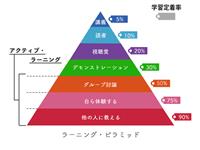INVESTMENTS
Fourth Edition
Market
Efficiency
Chapter 8
INVESTMENTS
Fourth Edition
�? Do security prices reflect information ?
�? Why look at market efficiency
- Implications for business and corporate finance
- Implications for investment
Efficient Market Hypothesis (EMH)
INVESTMENTS
Fourth Edition
�? Random Walk - stock prices are random
- Actually submartingale
�?Expected price is positive over time
�?Positive trend and random about the trend
Random Walk and the EMH
INVESTMENTS
Fourth Edition
Random Walk with Positive Trend
Security
Prices
Time
INVESTMENTS
Fourth Edition
Why are price changes random?
�? Prices react to information
�? Flow of information is random
�? Therefore, price changes are random
Random Price Changes
INVESTMENTS
Fourth Edition
�? Stock prices fully and accurately reflect publicly
available information
�? Once information becomes available, market
participants analyze it
�? Competition assures prices reflect information
EMH and Competition
INVESTMENTS
Fourth Edition
�? Weak
�? Semi-strong
�? Strong
Forms of the EMH
INVESTMENTS
Fourth Edition
Types of market efficiency
�? The weak-form of efficiency: price accurately reflect all
information that can be derived by examining market
trading data such as past prices, trading volume, short
interest rate, etc.
�? The semistrong form of efficiency: prices accurately reflect
all public available information, including past prices,
fundamental dat on the firm’s product line, quality of
management, balance sheet composition, patens held,
earning forecasts, accounting practice, etc.
�? The strong form of efficiency: prices accurately reflect all
information that is known by any one, including inside
information.
INVESTMENTS
Fourth Edition
Some words about market efficiency
�? An inefficiency ought to be an exploitable opportunity. If
there is nothing investors can properly exploit in a
systematic way, then it is very hard to say that information
is not being properly incorporated into stock prices;---
Richard Roll
�? Financial markets are efficient because they don’t allow
investors to earn above-average returns without taking
above-average risk---Burton Malkiel
�? The efficient markets theory holds that the trading by
investors in a free and competitive market drives security
prices to the true “fundamental” values. The market can
better assess what a stock or a bond is worth than any
individual investor.---Andrei Shleifer
INVESTMENTS
Fourth Edition
�? Technical Analysis - using prices and volume information
to predict future prices
- Weak form efficiency & technical analysis
�? Fundamental Analysis - using economic and accounting
information to predict stock prices
- Semi strong form efficiency & fundamental analysis
Types of Stock Analysis
INVESTMENTS
Fourth Edition
�? Active Management
- Security analysis
- Timing
�? Passive Management
- Buy and Hold
- Index Funds
Implications of Efficiency for Active
or Passive Management
INVESTMENTS
Fourth Edition
Mutual fund performance
�? Equity funds: on avrage, active managers
underperform index funds when both are
measured after expenses, and those that do
outperform in one-period are not typically the
ones who outperform in the next.
�? Fixed-income funds: on average, bond funds
underperform passive fixed-income indexes by an
amount roughly equal to expense, and there is no
evidence that past performance can predict future
performance.
INVESTMENTS
Fourth Edition
Anomalies
�? The size effects
�? The value effect
�? The short-term momentum
�? The long-term reversal
�? The new issues puzzle
�? The January effect…
INVESTMENTS
Fourth Edition
The bottom line
�? The efficient market hypothesis is a useful framework for
modeling financial markets.
�? Like any model, the efficient market hypothesis is not a
perfect description of reality; some prices are almost
certainly “wrong”.
�? However, it would be na?ve to think that prices are always
wrong or that it is easy to exploit priceing errors.
�? Instead of asking whether or not the market is efficient, the
more relevant questions are:
�? ---how efficient is the market?
�? ---how does the market react to new information arrivals?
And why?
�? ---what are the mechanisms that bring market prices to
fundamental values?
INVESTMENTS
Fourth Edition
�? Event studies
�? Assessing performance of professional
managers
�? Testing some trading rule
Empirical Tests of Market Efficiency
INVESTMENTS
Fourth Edition
1. Examine prices and returns over time
How Tests Are Structured
INVESTMENTS
Fourth Edition
Returns Over Time
0+t-t
Announcement Date
INVESTMENTS
Fourth Edition
2. Returns are adjusted to determine if they are
abnormal
Market Model approach
a. R
t
= a
t
+ b
t
R
mt
+ e
t
(Expected Return)
b. Excess Return =
(Actual - Expected)
e
t
= Actual - (a
t
+ b
t
R
mt
)
How Tests Are Structured (cont’d)
INVESTMENTS
Fourth Edition
2. Returns are adjusted to determine if they
are abnormal
Market Model approach
c. Cumulate the excess returns over time:
0+t-t
How Tests Are Structured (cont’d)
INVESTMENTS
Fourth Edition
�? Magnitude Issue
�? Selection Bias Issue
�? Lucky Event Issue
�? Possible Model Misspecification
Issues in Examining the Results
INVESTMENTS
Fourth Edition
�? Small Firm Effect (January Effect)
�? Neglected Firm
�? Market to Book Ratios
�? Reversals
�? Post-Earnings Announcement Drift
�? Market Crash of 1987
Anomalies
INVESTMENTS
Fourth Edition
�? Some evidence of persistent positive and
negative performance
�? Potential measurement error for benchmark
returns
- Style changes
- May be risk premiums
�? Superstar phenomenon
Mutual Fund and
Professional Manager Performance
| 课件名称: | 复旦大学:投资学讲义(英文版) |
| 课件分类: | 经济 |
| 课件类型: | 电子教案 |
| 文件大小: | 1.56MB |
| 下载次数: | 2 |
| 评论次数: | 2 |
| 用户评分: | 6.5 |
- 10. 复旦大学:投资学讲义(英文版):CHPT11-Performance Evaluation
- 11. 复旦大学:投资学讲义(英文版):CHPT12-1-Modern portfolio Theory
- 12. 复旦大学:投资学讲义(英文版):CHPT12-2-general asset pricing model
- 13. 复旦大学:投资学讲义(英文版):CHPT13- Factor pricing model--CAPM
- 14. 复旦大学:投资学讲义(英文版):CHPT14- The CAPM ---test
- 15. 复旦大学:投资学讲义(英文版):CHPT15- the equity market cross-section and time-series properties
- 16. 复旦大学:投资学讲义(英文版):CHPT17- Conditioning information
- 17. 复旦大学:投资学讲义(英文版):CHPT18-GMM in explicit discount factor models
- 18. 复旦大学:投资学讲义(英文版):CHPT19- GMM and regression-based tests
- 19. 复旦大学:投资学讲义(英文版):CHPT8-Market efficiency
- 20. 复旦大学:投资学讲义(英文版):CHPT9-Index and index fund



